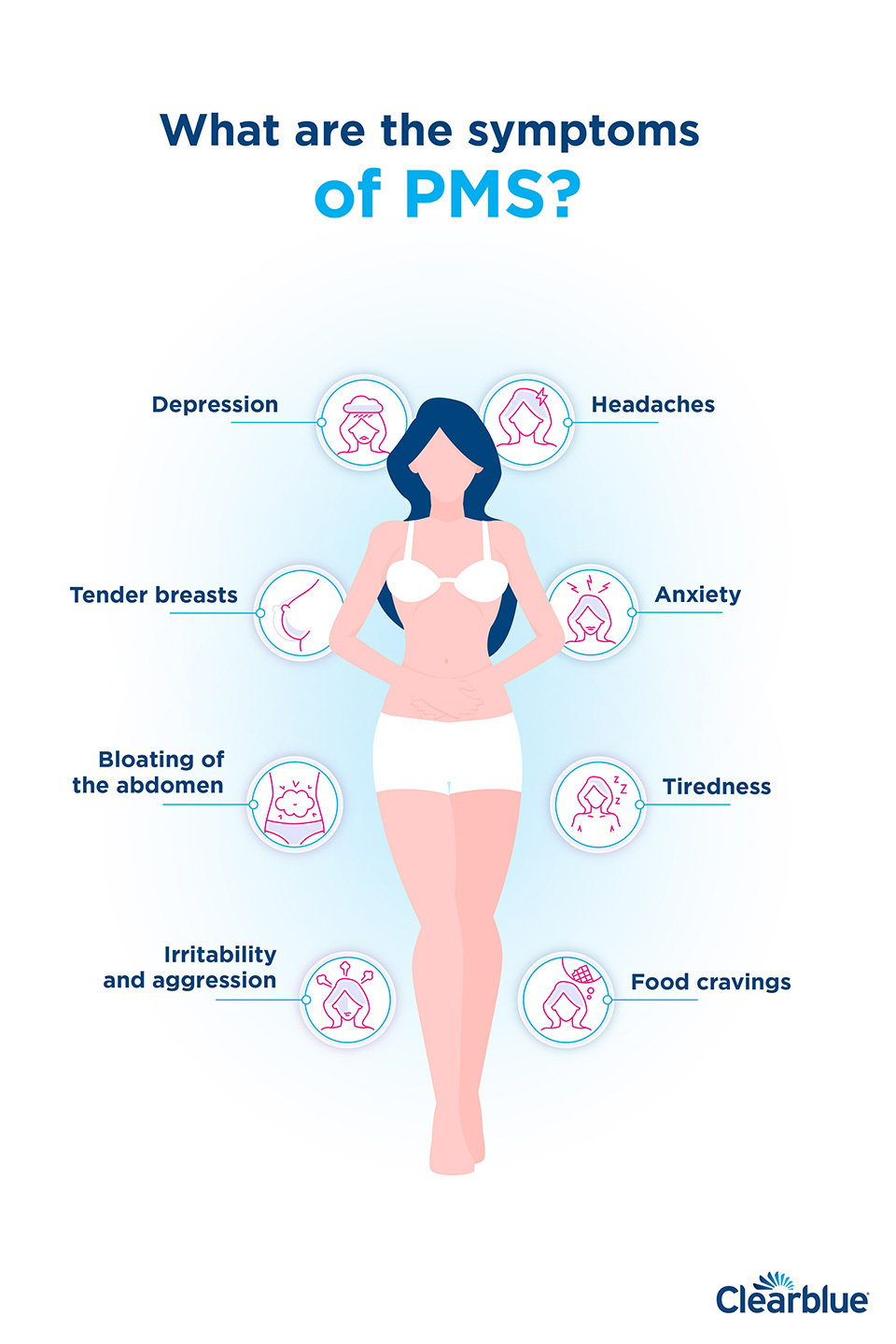
Pre-Menstrual Syndrome
PMS or premenstrual syndrome is a collection of physical and mental symptoms that begin one to two weeks before your period. Most women experience at least some PMS symptoms which subside once their periods begin. The symptoms might be modest to severe.
Overview
What's the difference between PMS and PMDD? Premenstrual dysphoric disorder (PMDD) is a severe and sometimes severe variant of premenstrual syndrome (PMS). PMDD affects about 2% of menstruating women. PMDD symptoms are similar to PMS symptoms however they are significantly more intense, especially in terms of emotional responses and mood. With PMDD you are more likely to experience anger extreme depression and anxiety than with PMS.
PMDD is a severe form of premenstrual syndrome (PMS). The symptoms of PMDD are severe enough to interfere with your life. PMDD is significantly rarer than PMS. Although one or two premenstrual symptoms are frequent clinically severe PMS affects only 3% to 8% of menstruating women.
Causes
PMS's causes remain unknown.
• Hormonal changes: Some people may suffer PMS symptoms as a result of hormonal changes related to their menstrual cycle. Symptoms often appear following ovulation when your ovaries release an egg. Around this period your estrogen and progesterone levels fall. Symptoms often disappear a few days following your period when your hormone levels begin to rise again. PMS may be caused by hormonal changes.
• Chemical changes in the brain: The neurotransmitters serotonin and norepinephrine play various critical roles in the body including mood emotion and behavior regulation. These chemical messengers may potentially play a role in PMS symptoms.
• Existing mental health issues: Living with a mental health issue such as depression or anxiety may increase your risk of PMS or premenstrual dysphoric disorder (PMDD) a more severe type of PMS.
• A family history: PMS bipolar disorder or depression particularly postpartum depression can also raise your chances. You may also experience premenstrual syndrome aggravation. This means that symptoms of underlying mental health issues such as bipolar disorder or depression worsen just before your period starts. Experts have yet to come up with a definitive explanation for the link between mental health symptoms and menstrual-related mood changes. However many people feel it is related to the chemical changes in the brain mentioned earlier.
• Factors of lifestyle: Certain habits may have an impact on the severity of your PMS symptoms. Smoking is one of the potential lifestyle variables that can aggravate PMS symptoms. A diet heavy in fat sugar and salt as well as a lack of regular physical activity and a lack of good sleep.
Symptoms
While PMS symptoms are frequently mild or moderate and have no influence on daily life they can be sometimes severe enough to interfere with your daily activities and overall well-being. These symptoms appear before each menstrual period. You may only experience some of the symptoms listed here or you may experience numerous but PMS usually involves at least a few different symptoms. Emotional symptoms may include,
Irritability
Mood swings
Crying spells
Depression Anxiety
Problems with focus and memory caused by excessive or little sleep
Less desire for sex. Physical signs and symptoms may include:
Breast enlargement and soreness
Acne
Weight gain and bloating
Headache
Joint discomfort
Backache
Diarrhea or constipation
Food cravings
Ayurvedic View
Due to aggravated vata dosha and with samsarga (combining )of pitta and kapha dosha, there can be symptoms like bloating, bowel movement changes, pain, fatigue, drowsyness etc, all these symptoms come under pre menstrual syndrome because it comes before menstruation is about to start. Ayurveda way of approach is to do vata anulomana, namely apana vata, do agni pachana (improve metabolism), reduce occurrence of these symptoms by ayurvedic panchakarma treatment and help patient to have regular menstrual cycle without much stressful or pain.
Ayurvedic Treatments
Snehanam Bashpa Swedanam Virechanam Vasti Pichu Lepanam Uttravasti
Naturopathy Treatments
Hip bath Immersion bath Arm & foot bath Enema Steam bath Mud therapy Packs Acupuncture Manipulative therapy Diet therapy Clinical yoga Pranayama Dorn therapy
Pre-Menstrual Syndrome
Treatment for
DISCLAIMER: Listed treatment details are only for information purposes. Treatments and duration may vary depending on numerous factors. Treatments for your condition may not be limited to this list.






















